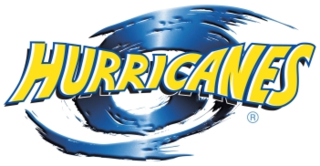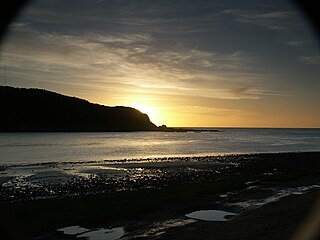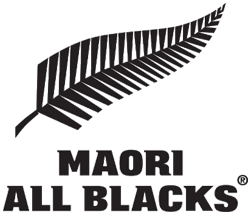This article is being considered for deletion in accordance with Wikipedia's deletion policy. Please share your thoughts on the matter at this article's entry on the Articles for deletion page. |
This is a list of haka performances by the New Zealand national rugby union team since the introduction of "Kapa o Pango" in 2005 as an alternative to "Ka Mate". It includes which haka was performed and which player lead the haka before the test match.
As of 2019, the choice of haka to be performed is typically discussed between the designated haka leader and other team leaders, usually the captain, in the run-up to the match. The one exception is for matches held in Wellington. While Kapa o Pango has been performed there in the past, the team's current practice is to always perform Ka Mate in Wellington as a show of respect to its composer Te Rauparaha, who lived in that region. [1]
| Win | Loss | Draw |
† to be confirmed

The New Zealand national rugby union team, commonly known as the All Blacks, represents New Zealand in men's international rugby union, which is considered to be the country's national sport. The team won the Rugby World Cup in 2011 and 2015, as well as the inaugural tournament in 1987.

The haka is a ceremonial dance or challenge in Māori culture. It is performed by a group, with vigorous movements and stamping of the feet with rhythmically shouted accompaniment. Although commonly associated with the traditional battle preparations of male warriors, haka have long been performed by both men and women, and several varieties of the haka fulfil social functions within Māori culture. Haka are performed to welcome distinguished guests, or to acknowledge great achievements, occasions or funerals.

The Hurricanes is a New Zealand professional rugby union team based in Wellington that competes in Super Rugby. The Hurricanes were formed to represent the lower North Island, including the East Coast, Hawke's Bay, Horowhenua Kapiti, Manawatu, Poverty Bay, Wairarapa-Bush, Wanganui and Wellington unions. They currently play at Sky Stadium, having previously played at the now-defunct Athletic Park.

Ngāti Toa, Ngāti Toarangatira or Ngāti Toa Rangatira, is a Māori iwi (tribe) in the lower North Island and upper South Island of New Zealand. Its rohe extends from Whanganui in the north, Palmerston North in the east, and Kaikoura and Hokitika in the south. Ngāti Toa remains a small iwi with a population of only about 4500. It has four marae: Takapūwāhia and Hongoeka in Porirua, and Whakatū and Wairau in the north of the South Island. Ngāti Toa's governing body has the name Te Rūnanga o Toa Rangatira.
Wayne Thomas "Buck" Shelford is a former New Zealand rugby union footballer and coach who represented and captained New Zealand in the late 1980s. He is also credited with revitalising the performance of the All Blacks' traditional "Ka Mate" haka.

"Ka Mate" is a Māori haka composed by Te Rauparaha, war leader of the Ngāti Toa tribe of the North Island of New Zealand.
Haka is a traditional Māori dance.

Piri Awahou Tihou Weepu is a New Zealand former rugby union player. Weepu plays for Wairarapa Bush in the Heartland Championship. Generally Weepu plays as a half-back but has also been known to play in the fly-half position. He has represented the New Zealand national side, the All Blacks. He first won national honours against Wales in 2004. In 2005 was called back into the All Blacks squad for the first Tri Nations test against South Africa, having missed selection for the 2005 British and Irish Lions tour.
The 2006 Tri Nations Series was the 10th Tri Nations Series, an annual rugby union competition between the national teams of Australia, New Zealand and South Africa. New Zealand won the competition with three rounds still to play after their victory over Australia on 19 August, their 21st consecutive home win.

Keven Mealamu is a former New Zealand rugby union footballer. He played at hooker for the Blues in Super Rugby, Auckland in the National Provincial Championship, and the New Zealand national team, the All Blacks. He was a key member of 2011 and 2015 Rugby World Cup winning teams, becoming one of only twenty dual Rugby Union World Cup winners.

The Māori All Blacks, previously called the New Zealand Māori, are a rugby union team from New Zealand. A representative team of the New Zealand Rugby Union, a prerequisite for playing in the team is that the player has Māori whakapapa (genealogy). In the past this rule was not strictly applied; non–Māori players who looked Māori were often selected in the team. These included a few Pacific island players and a couple of African descent. Today all players have their ancestry verified before selection in the team.
The haka, a traditional dance of the Māori people, has been used in sports in New Zealand and overseas. The challenge has been adopted by the New Zealand national rugby union team, the "All Blacks", and a number of other New Zealand national teams perform before their international matches; some non-New Zealand sports teams have also adopted the haka.

The haka is a traditional Māori dance form. The use of haka in popular culture is a growing phenomenon, originally from New Zealand. Traditionally, haka were used only in Māori cultural contexts, but today haka are used in a wide range of public occasions.

"Kapa o Pango" is a pre-match haka, or challenge, composed by Derek Lardelli, which is unique to the New Zealand national rugby union team, the All Blacks. Since 2005, the "Kapa o Pango" haka has been performed before rugby test matches by the All Blacks as an alternative to the usual "Ka Mate" haka. The longest sequence of "Kapa o Pango" performances is four, which happened in 2014.
Although the haka is a traditional dance form of the Māori of New Zealand, the use of a haka by the All Blacks rugby team before matches has made it familiar worldwide, and various haka have been adopted by sports teams outside New Zealand, particularly American football teams in the United States. Though some teams do contain Maori players, frequently the haka has been performed by teams with players from other Polynesian groups, indicating that it has become part of a pan-Polynesian sports culture.

Te Matatini is a nation-wide Māori performing arts festival and competition for kapa haka performers from all of Aotearoa. The name was given by Professor Wharehuia Milroy, a composite of Te Mata meaning the face and tini denoting many — hence the meaning of Te Matatini is many faces.
Turuhira Hare is a Māori academic of performing arts, composition and education. She is of Tūhoe, Te Arawa and English and Scottish descent and is a daughter of the late renowned Tūhoe kaumātua, Te Uruhina McGarvey. She is a leading figure in her community and is renowned for her contribution to the arts of kapa haka and education.

Thomas Tekanapu Rawakata Perenara, commonly known as TJ Perenara, is a New Zealand rugby union player who currently plays Halfback or first five eights for the Hurricanes in Super Rugby, as well as the Wellington Lions in the Mitre 10 Cup. He was part of the New Zealand under-20 rugby team that won the 2011 IRB Junior World Championship in Italy.

Morvin Te Anatipa Simon was a New Zealand Māori composer, kapa haka leader, choirmaster and historian.
Kiritokia e-te Tomairangi Paki was a prominent Māori kuia, and the daughter of Queen Te Arikinui Dame Te Atairangikaahu. She was the elder sister of King Tūheitia.